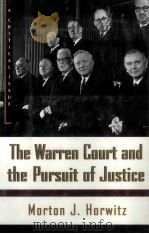《THE INTERNATIONAL COURT OF JUSTICE AND THE WESTERN TRADITION OF INTERNATIONAL LAW》
| 作者 | 编者 |
|---|---|
| 出版 | MARTINUS NIJHOFF PUBLISHERS |
| 参考页数 | 159 |
| 出版时间 | 1987(求助前请核对) 目录预览 |
| ISBN号 | 9024735246 — 求助条款 |
| PDF编号 | 812894198(仅供预览,未存储实际文件) |
| 求助格式 | 扫描PDF(若分多册发行,每次仅能受理1册) |
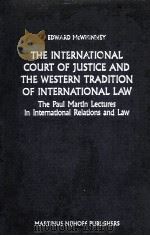
Chapter Ⅰ:The Challenge to 'Classical' International Law1
(a)The objection of Eurocentrism3
(i) Acquisition of territorial title by European 'discovery'5
(b)The objection of Colonialism8
(i) The special legal regime of Extraterritoriality in China8
(ii) Economic imperialism in Latin America:the Calvo and Drago Doctrines9
(iii) A duty of economic redress,and a New International Economic Order11
(c)The Soviet Union,and 'new' or 'contemporary'International Law12
(i) New imperative legal principles:Coexistence/Friendly Relations12
(ii) 'New' International Law,and 'contemporary'International Law15
(iii) Customary International Law newly up-graded16
Chapter Ⅱ:Nature and Definition of International Law in an Era of Transition20
(a)'Classical' Sources,and new conceptions of Lawas-Fact and Law-as-Process20
(i) Contemporaneity of the non-contemporaneous in International Law doctrine today:the 'old'and the 'new' textbooks21
(ii) Complexities as to normativity in contemporary International Law-Making25
(iii) Cross-currents and contradictions as to Sources and Processes in contemporary International Law-Making28
(iv) Trend and directions in the definition of law today31
(b)General Theory of Law:Legal Positivism,Legal Realism and Sociological Jurisprudence32
(i) On the vocation of our times for a new General Theory of International Law32
(ii) Disappearance of the single-author,comprehensive International Law texts33
(iii) The positivist tradition of International Law and Legal Science35
(iv) Legal Realism,and new Sociological approaches to International Law and Law-Making40
(v) The Sociological and Policy-Science schools in conflict over International Law47
Chapter Ⅲ:The Emerging Constitutionalism of World Order,and the International Court55
(a)United Nations Charter:Treaty or Constitution?55
(b) Democratic Constitutionalism:emergence of the U.N.General Assembly58
(c) Reception of American constitutional ideas:the World Court and judicial Law-Making65
(d)Evolution of the World Court:elections of judges73
(i) 'Regional' trends in judicial elections75
(ii) Some emerging voting patterns in judicial elections80
(e)Western retreat from the Court83
(i) Withdrawal from compulsory jurisdiction83
(ii) Recourse to Arbitral tribunals85
(iii) Special Chambers of the Court,and the issue of choice of judges86
(f) Third World discovery of the Court93
Chapter Ⅳ:Contemporary Crisis of the World Court:International Adjudication and International Legal Problem-Solving99
(a)The Nicaragua v.United States of America processes,1984-198699
(b) Chronology of political-legal events in the Nicaragua processes,1984-1986100
(c) The U.S.Government's objections to a World Court role in Nicaragua v.United States102
(d)Nicaragua v.United States,Merits:the legal rationale109
(i) Significance of the U.S.multilateral treaty eservation110
(ii) The issue of 'justiciability',and the Law/Politics dichotomy111
(iii) The non-appearance of the Respondent,United States117
(iv) The claimed right of intervention by a Third Party,El Salvador119
(v) The objection of 'interest' advanced against certain national judges120
(e) U.N.Charter Law,and the applicability of general,Customary International Law123
(f) The substantive-legal holdings of the Court's Merits ruling127
(g)The innovative character of the Merits decision:Jus Cogens,Law-as-Fact,and 'Judge and Company'129
(i) Non-use of Force and Non-intervention,as Jus Cogens129
(ii) Law-as-Fact,and new approaches to 'Sources' of International Law131
(iii) 'Judge and Company':the Court and other international law-making authorities132
Chapter Ⅴ:The Future of International Adjudication and International Law137
(a)Some myths and realities in current critiques of the Court137
(i) The alleged anti-Western majority on the Court137
(ii) The alleged 'Marxist-Leninist' behaviour of Soviet and Eastern European judges on the Court138
(iii) The alleged 'ganging-up' by the Third World States in the election of judges139
(b) The law/politics dichotomy,and the limits and possibilities of the judicial process140
(c) 'Judge and Company':Court,General Assembly,Secretary-General,and Security Council143
(d) Constitutional-legal linkage:relevance of Definition and General Theory of Law144
(e) The problem of normativity:changing international law values in an era of transition146
(f) 'Reception' of Western general legal ideas:the 'internationalisation' of the International Court and International Law149
Index155
1987《THE INTERNATIONAL COURT OF JUSTICE AND THE WESTERN TRADITION OF INTERNATIONAL LAW》由于是年代较久的资料都绝版了,几乎不可能购买到实物。如果大家为了学习确实需要,可向博主求助其电子版PDF文件(由 1987 MARTINUS NIJHOFF PUBLISHERS 出版的版本) 。对合法合规的求助,我会当即受理并将下载地址发送给你。
高度相关资料
-
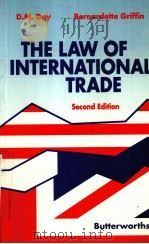
- The Law of International Trade
- 1993 Butterworth-Heinemann
-

- THE DYNAMICS OF INTERNATIONAL LAW
- 1976 PROFESSIONAL BOOKS LIMITED
-
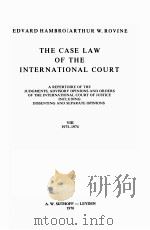
- THE CASE LAW OF THE INTERNATIONAL COURT VIII 1973-1974
- 1976 A.W.SIJTHOFF-KEYDEN
-
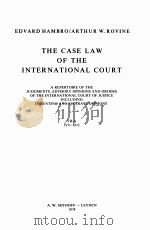
- THE CASE LAW OF THE INTERNATIONAL COURT VII-A 1971-1972
- 1974 A.W.SIJTHOFF-KEYDEN
-
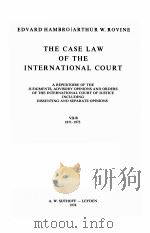
- THE CASE LAW OF THE INTERNATIONAL COURT VII-B 1971-1972
- 1974 A.W.SIJTHOFF-KEYDEN
-

- THE INTERNATIONAL LAW OF RECOGNITION
- 1951 STEVENS & SONS LIMITED
-

- THE DEVELOPMENT OF INTERNATIONAL LAW BY THE INTERNATIONAL COURT
- 1958 STEVENS & SONS LIMITED
-

- INTERNATIONAL LAW AND THE USE OF FORCE
- 1993 ROUTLEDGE
-
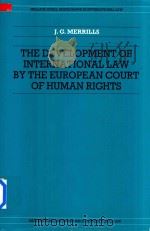
- The Development of International Law by the European Court of Human Rights
- 1988 Manchester University Press
-
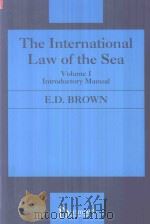
- The International Law of the Sea
- 1994 Dartmouth
-

- The Law of International Organisations
- 1996 Manchester University Press
-
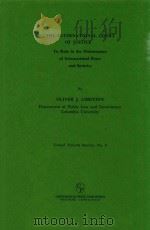
- The International Court of Justice Its Role in the Maintenance of International Peace and Security
- 1978 Greenwood Press
-
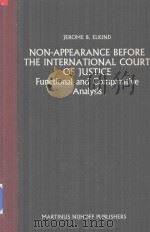
- Non-Appearance before the International Court of Justice Functional and Comparative Analysis
- 1984 Martinus Nijhoff Publishers
-
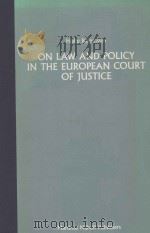
- ON LAW AND POLICY IN THE EUROPEAN COURT OF JUSTICE
- 1986 MARTINUS NIJHOFF PUBLISHERS
提示:百度云已更名为百度网盘(百度盘),天翼云盘、微盘下载地址……暂未提供。➥ PDF文字可复制化或转WORD
